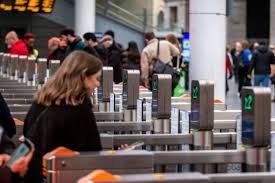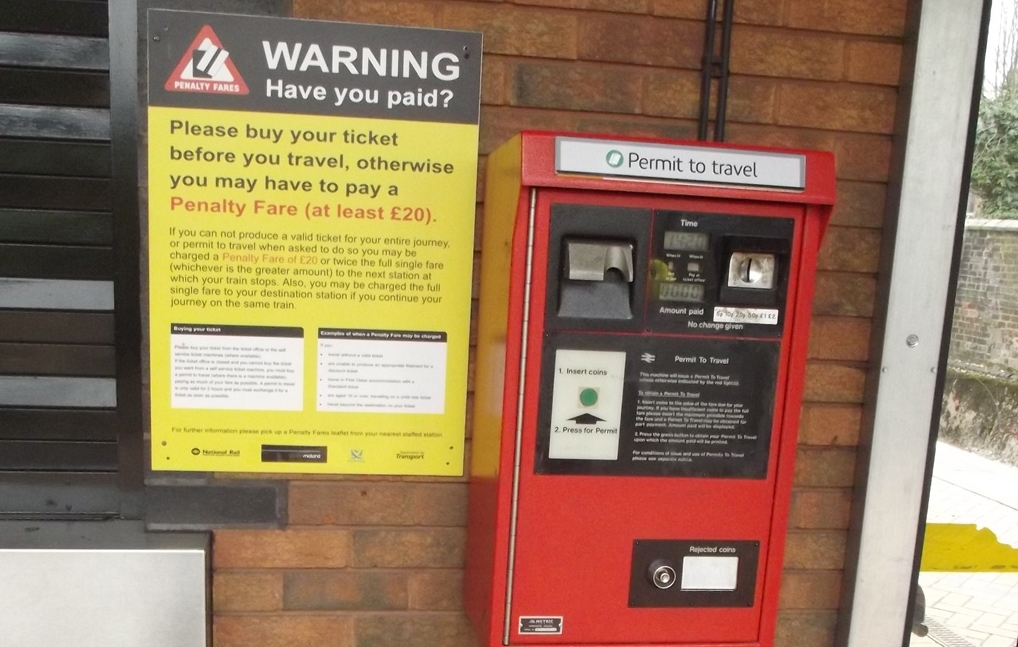Most people regard train, bus, or tube fares as a routine part of daily life. But in today's economic climate, a growing number of travellers are either tempted, or feel compelled, to ride without paying. Meanwhile, the UK's major transport operators and authorities are imposing tougher measures to catch and penalise fare dodgers. As a solicitor who has handled numerous fare disputes and criminal cases, I've observed the rise of fare evasion as well as a corresponding clampdown by transport providers.
This article aims to shed light on why fare evasion penalties are increasing, what legislation underpins the practice, and how you can avoid unintended legal consequences. Whether you've encountered a penalty notice in the past or simply want to stay well informed, read on for crucial insights into this evolving area of public transport regulation.
Understanding Fare Evasion
Fare Evasion Definition
In broad legal and practical terms, the fare evasion definition covers travelling on public or private transport without holding a valid ticket or pass. This includes instances where someone enters a train station, boards a bus, or uses a tram system without paying the required fare upfront. It also extends to those who knowingly travel beyond the validity of their purchased ticket, for example, leaving the train at a station in a more distant zone than paid for.
Fare Evasion Meaning
At its core, fare evasion meaning refers to obtaining transport services without rightful payment. This might involve deliberately bypassing ticket checks, but it can also include simpler oversights such as failing to "tap in" with a contactless card. Under UK law, even unintentional oversights can lead to penalties, because strict liability offences mean operators do not have to prove you intended to dodge the fare; they only need to show you did not possess a valid ticket for the journey made.
Why the Penalties Matter
Though some people view fare evading as a "victimless" act, transport bodies argue that unpaid fares reduce revenue needed to maintain services, improve infrastructure, and keep costs stable for law-abiding passengers. For this reason, operators are stepping up enforcement efforts, often in partnership with local authorities and the British Transport Police.
The Legal Basis for Fare Evasion Enforcement
Statutory Framework
In England and Wales, fare evasion can be prosecuted under the Regulation of Railways Act 1889, certain railway byelaws, and local transport rules. While the specifics vary, most share the principle that simply travelling without a proper ticket constitutes an offence.
Penalties and Prosecutions
Operators often issue on-the-spot penalty fare notices, which can be challenged or paid within a short time frame. Those who ignore or repeatedly flout these penalties risk facing a court summons, leading to more significant fines and even a criminal record. This escalation underscores the seriousness of fare evasion punishment.
Strict Liability
Many fare evasion cases fall under strict liability, so the operator need not prove your intention. If you're found on a train, bus, or tram without a valid ticket for your journey, you could be deemed liable. Although some operators may exercise discretion, especially for first-time or minor cases, there is no legal requirement for them to do so.
Why Are Penalties on the Rise?
Technological Advances
Contactless payment and app-based ticketing have transformed how passengers pay for travel. While these systems offer convenience, they also create new forms of evasion of fare, for example, failing to tap out correctly or misusing mobile tickets. In response, operators have improved their detection methods, using software that flags suspicious travel patterns.
Financial Pressures
Many transport networks face budgetary constraints, forcing them to recoup losses through strict fare enforcement. As government subsidies fluctuate, operators may see revenue protection as essential for sustaining services or expanding infrastructure.
Public Pressure
Amid rising costs of living, law-abiding passengers often complain about paying full price while others appear to be evading fare unchecked. Heightened penalties can help reassure paying passengers that operators are acting fairly, distributing costs equally among all travellers.
Regulatory Mandates
In some regions, local or national authorities encourage, or even require, transport operators to clamp down on offenders. This policy-driven approach emerges from concerns about fairness, security, and the broader economic impact of lost revenue.
Overall, the rise of fare evasion has coincided with improved detection technology, stricter rules, and a focus on revenue recovery. The result is a tougher stance on fare dodging, with higher penalties and fewer second chances.
Potential Consequences of Fare Evasion
Civil Penalty Notices
Most cases begin with a penalty fare notice, which often involves a set fine (such as £20 or more) or a multiple of the correct fare. If you settle the notice promptly, this usually avoids a criminal record.
Prosecution and Criminal Record
Repeat incidents or more serious examples of evading fare can lead to a formal prosecution. Those found guilty might receive hefty fines, plus a criminal record that can impact employment or travel visas.
Court Costs and Compensation
If a case reaches court, offenders could be required to cover legal costs and compensate the transport operator for any unpaid fares.
Travel Restrictions
Although rare, being prosecuted may affect future applications for certain travel passes or concessionary schemes, particularly for those already flagged by operators' security systems.
Common Mistakes Leading to Fare Evasion
Unaware of Zone Boundaries
Many travellers fail to realise their ticket or pass has strict zone limitations. Travelling beyond a valid zone, even by one stop, can lead to allegations of fare evading.
Forgetting to Tap In or Out
Increasingly, passengers rely on contactless payments. Failing to tap in correctly at the start, or tapping out at the end, means the system cannot deduct the correct fare. Without proof you attempted to pay, it can look like evasion of fare.
Misuse of Concessionary Passes
Borrowing or lending a pass that is not strictly yours, such as a student or elderly pass, can quickly escalate into an offence.
Relying on Receipts or Emails
Some travellers assume an online purchase reference is enough. If you are stopped by an inspector and cannot produce a valid ticket or properly activated mobile ticket, that alone could constitute fare evasion.
Tips for Staying on the Right Side of the Law
Double-Check Your Ticket
Whether you're using a paper ticket, Oyster card, or mobile app, confirm that your pass covers the correct zones and times of travel. Taking a moment to verify details reduces your risk of fare evading by accident.
Tap In and Out Diligently
Where contactless systems operate, ensure you correctly tap at the start and end of your journey. Watch the ticket gate or card reader for confirmation that it recognised your payment.
Keep Records
If something goes wrong, like a ticket machine malfunction, document it with a photo. Retain any paper receipts or email confirmations. In case you are questioned, tangible evidence might save you from accusations of evasion of fare.
Address Penalty Notices Promptly
Ignoring a penalty fare or letter from the operator is risky. Many notices have strict deadlines, often 21 days, to either pay or appeal. Missing these deadlines usually leads to higher fines and possible prosecution.
Seek Legal Advice if in Doubt
If you receive a summons or a formal notice suggesting you face prosecution, consult a solicitor. A professional can assess your situation, identify potential defences, and negotiate on your behalf.
The Role of a Solicitor in Fare Evasion Cases
Assessment of Evidence
A solicitor can review whether the transport operator followed the correct procedures and identify any technical or legal shortcomings in their claim against you.
Negotiation
Sometimes, operators accept an out-of-court settlement if your case is clearly the result of a mistake or misunderstanding. A solicitor experienced in fare disputes can often broker such resolutions.
Representation in Court
If matters escalate, legal counsel can help you navigate complex legislation and present mitigating circumstances. The difference between a hefty fine and a more lenient outcome can hinge on skilled advocacy.
Long-Term Impact
Accusations of fare evasion need careful handling, as a criminal record may affect employment, visas, or professional licences. Early legal intervention is often cheaper and less stressful than waiting for a court date.
Conclusion
The surge in penalties for fare dodging is no coincidence. Faced with financial pressures, advanced technology, and public demand for fairness, transport operators are less tolerant of any form of evading fare. Understanding the fare evasion meaning, and the scope of offences, is vital if you want to steer clear of fines and a potential criminal record.
Remember:
- The fare evasion punishment can range from a modest penalty fare to a court-imposed sanction.
- Even inadvertent mistakes can be penalised under strict liability provisions.
- If you do find yourself accused, act quickly and consider professional advice.
Although the concept of fare evasion might seem minor compared to other legal issues, it can carry significant consequences if handled poorly. Staying proactive, paying close attention to ticketing requirements, and addressing any notices promptly will help you remain on the right side of the law.



